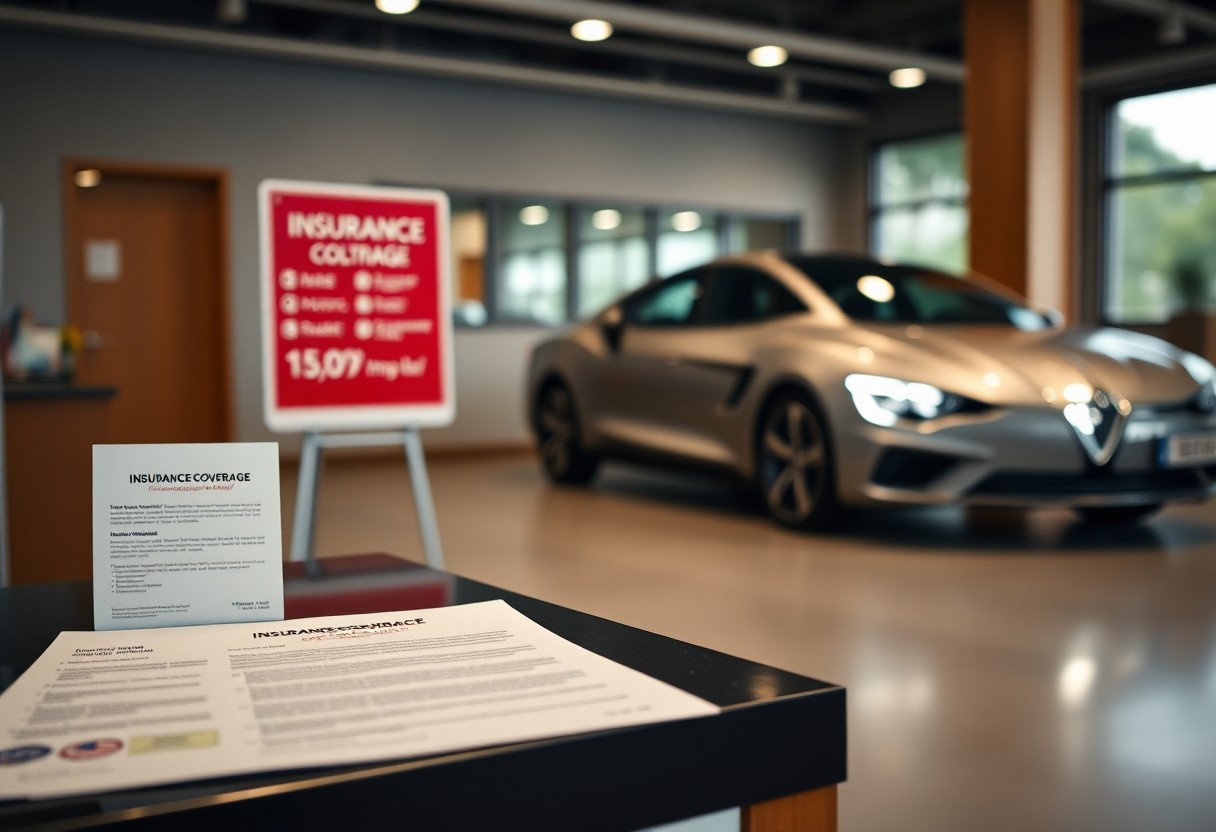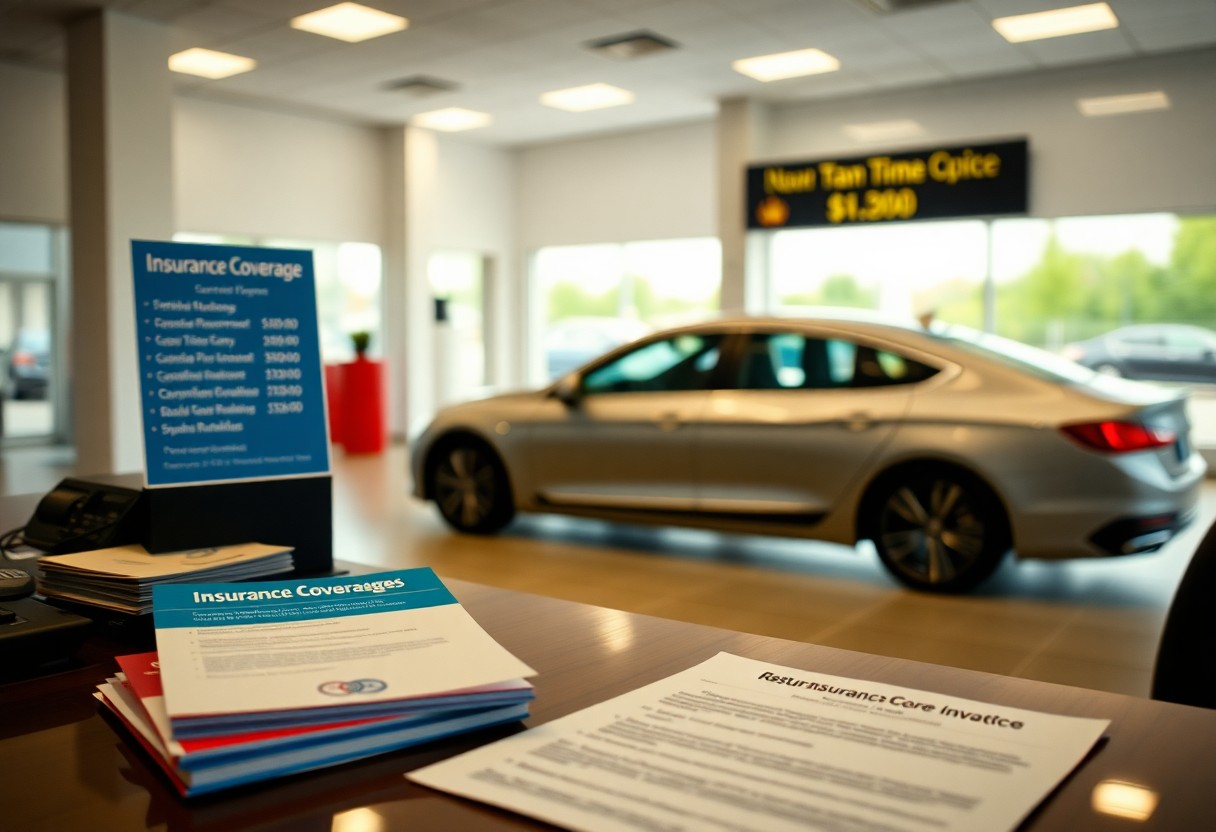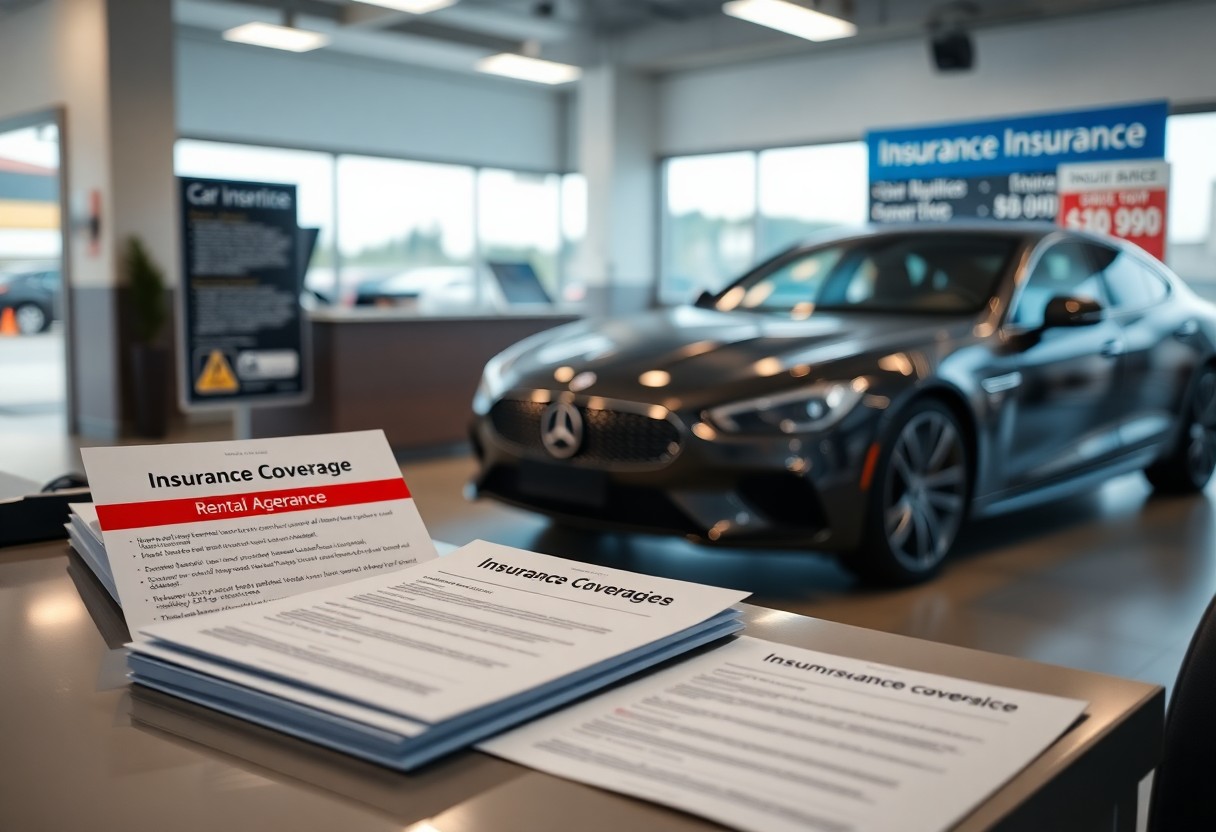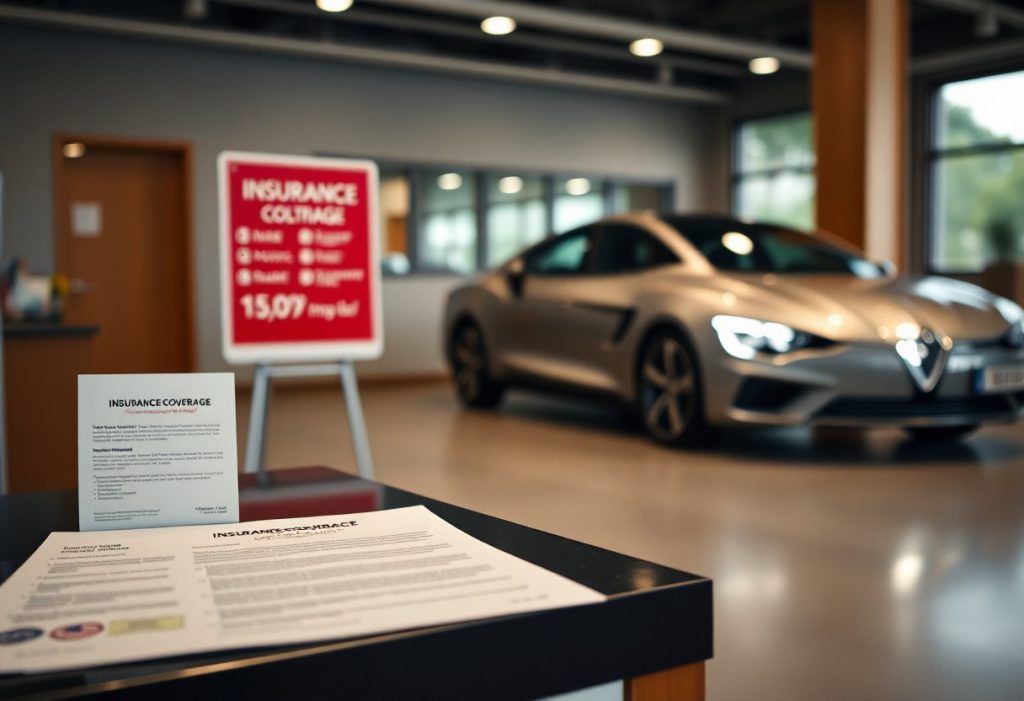Grasping the intricacies of rental car insurance is vital before finalizing your next car rental agreement. Your existing personal auto insurance might not extend full coverage to rental vehicles, placing you at significant financial risk in case of an incident. A variety of insurance options are available, including collision damage waivers, liability coverage, and personal accident insurance, each crafted to meet specific protection needs. Without sufficient coverage, you may be liable for hefty repair bills or medical costs following an accident. This all-encompassing guide is designed to help you choose the right insurance coverage for your rental vehicle, ensuring you receive the necessary protection at a cost-effective rate.
Here’s the formatted content based on your requirements:
Explore Fundamental Insurance Types for Your Rental Car
To facilitate a stress-free rental experience, it’s crucial to comprehend the various forms of car insurance coverage available. Common options encompass collision damage waiver, liability protection, and personal accident insurance. Tailoring each coverage option to your specific needs and circumstances can effectively mitigate potential risks and enhance your overall rental experience.
| Insurance Type | Primary Purpose |
| CDW/LDW | Vehicle damage protection |
| Liability Insurance | Third-party damage coverage |
| Personal Accident | Medical expenses coverage |
| Personal Effects | Personal property protection |
| Roadside Assistance | Emergency support services |
In-Depth Look at Collision Coverage Options
The collision damage waiver (CDW) is designed to provide essential protection against the costs associated with vehicle damage. This coverage can significantly reduce your financial liability to a minimal deductible or may even absolve it entirely, depending on the rental terms. Your rental car is protected against theft, vandalism, and accidents, granting you peace of mind throughout your rental period. This protection is indispensable, ensuring that unforeseen incidents do not result in unexpected financial burdens that could otherwise disrupt your travel plans.
Enhancing Security with Third-Party Protection Plans
After establishing your fundamental coverage, incorporating third-party protection can greatly amplify your sense of security. This type of insurance generally covers damages inflicted on other vehicles, property, or injuries sustained by others, often providing liability coverage of up to $1 million. Options for third-party protection include supplemental liability insurance (SLI) and extended protection (EP). These plans effectively bridge the coverage gaps left by your personal auto insurance policy, extending protection up to $2 million in specific scenarios. Moreover, this coverage extends beyond the rental vehicle itself, encompassing potential legal expenses and medical costs for others involved in an accident, ensuring comprehensive protection.

Comprehensive Personal Protection Coverage Explained
Personal Protection Coverage is an amalgamation of various insurance types tailored to protect both you and your belongings during the rental period. This extensive coverage encompasses medical expenses, accidental death benefits, and protection for personal items, making it an exceptional safety choice for your rental experience. By selecting this coverage option, you ensure that both your personal health and property are thoroughly protected throughout your travels, allowing you to focus on enjoying your journey without unnecessary worry.
Key Advantages of Personal Accident Insurance
Supplementing standard rental insurance, Personal Accident Insurance is crucial for providing coverage for you and your passengers, ensuring protection for medical expenses up to $100,000 and accidental death benefits reaching $175,000. This vital coverage can typically be obtained at an affordable rate of about $3-7 per rental day, guaranteeing essential medical protection during your travels. It’s a significant consideration for anyone aiming to enhance safety while on the road, making it a worthwhile investment for peace of mind.
Safeguarding Your Belongings with Personal Effects Coverage
To shield against theft or damage, Personal Effects Coverage is designed to protect your belongings stored inside the rental car. This insurance generally covers personal items valued up to $500 per person, with a maximum limit of $1,500 per rental</b. Your electronics, luggage, and other valuables are secured while you travel, offering significant peace of mind. Insurance providers frequently bundle Personal Effects Coverage with Personal Accident Insurance, creating a comprehensive protection package. This coverage not only extends to you but also to your family members and authorized passengers, with claims needing to be filed within 24 hours of any incident to ensure successful compensation.
Boost Your Rental Car Protection with Additional Services
In addition to standard insurance coverage, you can enhance your rental car protection by utilizing specialized services. These services offer comprehensive protection for various scenarios, ranging from roadside emergencies to coverage for personal belongings, ensuring you enjoy complete peace of mind throughout your rental duration. Such additional services can be invaluable in alleviating stress and ensuring a smooth travel experience.
Maximizing Convenience with Roadside Assistance Programs
Roadside assistance programs provide essential 24/7 emergency services, delivering immediate help for common issues such as flat tires, dead batteries, or lockouts. These programs typically cost between $5 to $15 per rental day and can prove to be a cost-effective solution, allowing you to avoid the high costs of towing fees or service calls. Having this option ensures that you are never left stranded, regardless of the challenge you may face during your travels.
Decoding the RentalCover System for Greater Savings
Unlike traditional insurance methods, RentalCover introduces a unique refund-based system. You initially pay for any damages incurred, and the company reimburses you within 3-5 business days after your claim is approved. This system offers broader coverage than standard rental insurance options. Central to RentalCover’s service is a streamlined claims process that simplifies your experience. Your coverage includes protection against theft, vandalism, and accident damage, often providing lower daily rates than rental counter insurance, saving you 50% or more on protection costs. Additionally, you benefit from direct customer support throughout the claims process, ensuring a smooth and efficient experience.

Here’s the formatted content following your requirements:
Key Factors Influencing Your Rental Insurance Needs
Your specific rental car insurance requirements can vary significantly based on numerous factors, including your travel destination, the type of vehicle, and the length of your rental period. Local traffic laws, road conditions, and your personal driving experience are vital in determining the coverage you will need. Understanding these factors is essential, as it helps you select the right insurance level tailored to your unique circumstances and travel plans.
Identifying Critical Moments Necessitating Insurance Coverage
Particular situations increase the necessity of rental car insurance. For example, driving in foreign countries, renting luxury vehicles, or traveling through regions with high accident rates significantly escalates your risk. Additional coverage becomes crucial when navigating unfamiliar areas or adverse weather conditions, as these factors can greatly influence your safety and potential liability during your travels.
Guidelines for Effective Risk Assessment in Rental Insurance
Each insurance decision should start with a thorough evaluation of potential risks. Key factors to assess include your driving history, the value of the rental vehicle, and local traffic patterns. Additionally, reviewing your current auto insurance policy for coverage gaps is essential in determining your rental insurance requirements. Guidelines for effective risk assessment include checking your personal insurance policy limits, understanding local driving regulations, and assessing the weather conditions at your destination. It is also prudent to review accident statistics and crime rates in your rental area while considering your planned activities and driving distances to ascertain appropriate coverage levels.
Understanding the Various Cost Factors of Rental Insurance
To effectively manage your rental car insurance costs, it is crucial to comprehend the pricing structure. Basic coverage generally ranges from $10-30 per day, while comprehensive packages can vary from $20-60 daily. The final cost is influenced by various factors, including the type of vehicle, the duration of the rental, and the rental location. By booking insurance in advance, you could potentially save as much as 30% on your total costs.
Breakdown of Rental Insurance Pricing Categories
Rental car insurance packages typically fall into distinct pricing categories: CDW/LDW costs approximately $15-25 per day, liability coverage generally ranges from $10-15 daily, and personal accident insurance averages $5-7 per day. Additional services such as roadside assistance usually add $5-10 to your daily rate, contributing to the overall cost of your rental experience, which can be an essential factor when budgeting for your trip.
Evaluating the Value of Your Insurance Options
When considering your insurance options, comprehensive coverage provides the best value, especially for international travel. Your decision should aim to strike a balance between cost and the level of protection offered. Remember that accident-related expenses without insurance can easily exceed $10,000, making daily insurance rates a prudent investment in securing your financial well-being during your travels.
As you navigate the decision-making process, weigh the daily insurance cost against the potential risks involved. While basic coverage can save you thousands in minor accidents, full coverage offers a safety net against significant financial losses. Although your personal auto insurance may provide some level of protection, gaps in coverage might leave you exposed to substantial expenses, emphasizing the importance of thorough evaluation.

Essential Guidelines for Selecting the Right Rental Insurance
When it comes to selecting car rental insurance, aligning your coverage with specific travel needs and associated risks is crucial. Your choice should consider factors such as your destination, rental duration, and the type of vehicle you plan to rent. Additionally, you can save up to 30% on insurance costs by checking whether your personal auto insurance or credit card offers rental coverage, potentially decreasing your overall expenses.
Key Factors to Evaluate in Your Coverage Decision
Several key factors should be assessed when making your rental insurance decision: deductible amounts, coverage limits, and exclusions. Confirming whether the policy includes 24/7 roadside assistance and third-party liability protection is crucial. Comparing various providers can help you find competitive rates ranging from $10 to $60 per day, ensuring that you make an informed and beneficial decision.
Understanding Regional Insurance Requirements for Car Rentals
Importantly, approximately 70% of international car rentals require additional insurance coverage due to differing local regulations. It is essential to verify the coverage requirements for each country you plan to visit, as insurance laws can vary greatly between regions. Given the differences in traffic regulations and risk levels, your insurance needs may shift based on your location. In high-risk areas, considering comprehensive coverage that includes theft protection and higher liability limits is advisable. Additionally, local insurance requirements can elevate your total rental costs by 15-40%, making it crucial to factor these into your budget.
Frequently Asked Questions Regarding Rental Car Insurance
Q: What are the fundamental types of car rental insurance coverage and their associated costs?
A: Car rental insurance typically comprises four primary types:
1. Collision Damage Waiver (CDW) – Costs $10-30 per day, covering damage to the rental car
2. Liability Insurance (LI) – Costs $8-15 per day, covering damage to other vehicles and property
3. Personal Accident Insurance (PAI) – Costs $5-10 per day, covering medical expenses for you and passengers
4. Personal Effects Coverage (PEC) – Costs $2-5 per day, protecting belongings inside the car
Q: Does my personal auto insurance or credit card provide coverage for rental cars?
A: Many personal auto insurance policies extend coverage to rental cars. Additionally, credit cards often offer CDW coverage if you use the card to pay for the rental. However, be mindful that coverage limits and exclusions can apply:
– Personal auto insurance may have high deductibles
– Credit card coverage is typically secondary insurance
– International rentals may not be covered
– Luxury or specialty vehicles may be excluded
Always verify your specific policy and card benefits before declining rental insurance.
Q: What are the consequences of damaging a rental car without insurance?
A: Without rental car insurance, you assume complete responsibility for:
– All repair costs for damage to the rental vehicle
– Loss of use fees while the car is being repaired
– Administrative fees charged by the rental company
– Towing and storage costs if applicable
– Potential legal fees in case of disputes
The total costs can quickly escalate into thousands of dollars, highlighting the importance of having insurance as a necessary protective measure.
The Article: Types of car rental insurance coverage options costs and essential details appeared first on https://rentacar24.org/
The Article Car Rental Insurance Coverage: Costs and Key Options Was Found On https://limitsofstrategy.com



Your piece really shines a light on an often overlooked aspect of travel planning! I remember a time when I rented a car for a weekend getaway. I had assumed my personal auto insurance would cover me, but I quickly realized that the specifics were a lot murkier than I’d anticipated. Your discussion about the varying types of coverage, like collision damage waivers and liability insurance, underscores just how essential it is to dig into the details before driving away.
It’s great to hear that my article struck a chord with you! Your experience with car rentals is a story I think a lot of us can relate to. The whole insurance aspect can feel like navigating a maze, right? I remember my first rental; I thought a quick glance at my auto policy would suffice. Spoiler alert: it didn’t.
This post touches on an often-overlooked aspect of the car rental experience that can significantly impact both finances and peace of mind during travel. It’s so true that understanding the nuances of rental car insurance isn’t just a minor detail but rather a vital element that can save you from potential headaches and unexpected costs down the line.
You’ve tapped into something really important with your observation about rental car insurance. It’s fascinating how something that seems like a small part of the travel process can have such a big impact on our overall experience. I remember my own first few rentals—navigating all the options felt overwhelming, and I often assumed everything would just work itself out. But that mindset changed after a couple of not-so-great experiences.
Your discussion about rental car insurance intricacies touches on a crucial yet often overlooked aspect of the travel experience. For many, renting a car can be a last-minute decision while traveling, and that urgency might lead to a cavalier approach toward insurance options. I’ve often found myself in that position, simply opting for the basic coverage without fully understanding what it entailed, which is something I now realize could have seriously jeopardized my financial security.
This blog post highlights an area that many overlook until it’s too late. During my last car rental experience, I relied on my personal auto insurance, thinking I was covered—only to discover the fine print excluded certain damages. It led me to research more about the various insurance options available specifically for rentals, and I appreciated the peace of mind that came with a collision damage waiver.
This is such an important topic, and I really appreciate you delving into the nuances of rental car insurance. I remember my first car rental experience; I was just excited to explore a new city, but I completely underestimated the insurance aspect. I ended up taking the add-on coverage without really understanding what it entailed, mainly due to the pressure of the rental agent’s pitch. It was only after I returned the car that I took a moment to reflect on whether I’d made the right choice.